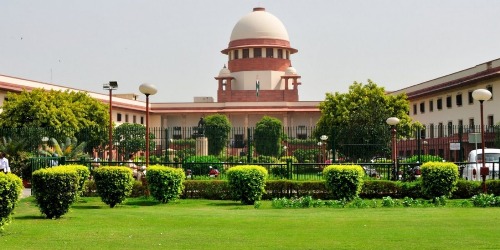NEWS
How the SC verdict will impact banks
Banks could see impact of Rs 7,500 cr as SC orders waiver of compound interest for all borrowers who availed loan moratorium.
Banks could see impact of Rs 7,500 cr as SC orders waiver of compound interest for all borrowers who availed loan moratorium.

Banks could see an overall impact of Rs 7,500 crore as the Supreme Court has ordered a waiver of interest on interest for all borrowers who availed the RBI’s Covid-induced loan moratorium last year.
While refusing to extend the moratorium beyond 31 August 2020, the apex court also did not find any reason to restrict the compound interest (interest on interest) to loans only up to Rs 2 crore. Earlier, the central government had agreed during the hearing to absorb the cost of interest on interest for small-sized loans of up to Rs 2 crore each across eight categories of borrowers. This would cost the government an estimated Rs 6,500 crore.
It is not clear at this stage if the government would also be willing to reimburse the compound interest waiver for loan accounts above Rs 2 crore. In case the government declines to do so, the banks will have to bear the pinch.
The impact for all lenders will be less than 0.1% of overall system loans, according to JM Financial. “While it is not yet clear whether this incremental hit will be absorbed by the government or if it will be passed on to the banks, we estimate the overall impact to be limited to Rs 70-75bn (in addition to the Rs 65bn relief already provided to the smaller borrowers) for all lenders, i.e. less than 0.1% of overall system.”
JM Financial continues to be positive on large banks. “We remain positive on large banks given improving return ratios, healthy capitalisation levels and opportunity for market share gains. ICICI Bank, HDFC Bank and SBI are our top picks in the sector,” it said.
According to ICICI Securities, waiving interest on interest on loans above Rs 2 crore under moratorium would lead to a fresh burden of Rs 5,000 crore for the industry. “This would include ~Rs 12bn for private banks/SFBs (small finance banks), ~Rs 28bn for PSU banks, and Rs 9bn for NBFCs/HFCs. The above means a drag of less than 4bps on RoAs. With respect to the lender-groups, this translates to RoAs (advances) of 3/4/5/4 bps for private banks, SFBs, PSUs and NBFCs/HFCs respectively,” it said.
Rating agency Crisil in a report said it estimates the ex-gratia payment of interest on interest by lenders for the moratorium period to be Rs 7,500 crore, equally split between the banks and non-banking financial companies (NBFCs).
Banks can now declare their non-performing assets (NPAs) when they announce their fourth quarter results after 31 March, 2021. So far they were bound by the standstill clause for defaults during the six-month moratorium.
“The Standstill on recognition of NPAs had tied the hands of lenders and consequently impacted the credit discipline of the borrowers. Withdrawal of the same will enable lenders to enforce various legal measures and support their recovery efforts,” Crisil said.
In its judgment on Tuesday, the Supreme Court (SC) said compound interest for all borrowers availing a moratorium, irrespective of loan amount or category, is to be waived. The top court ordered that the amounts already recovered as interest on interest for the moratorium period must be adjusted by the banks.
However, the SC rejected petitions for a complete waiver of interest and extension of moratorium until the end of FY21. This is seen as a positive to banks.
“It is directed that there shall not be any charge of interest on interest or compound interest or penal interest for the period during the moratorium,” a bench of Justices, Ashok Bhushan, R,Subhash Reddy and M.R.Shah ordered in a 148-page judgment.
The amount accumulated as compound interest or penal interest or interest on interest during the six-month moratorium should be given as “credit or adjusted in the next instalment of the loan account,” the court said.
The judgment concluded that the government’s scheme to restrict the waiver of interest on interest to loans up to Rs 2 crore as irrational. This scheme introduced in October was limited to loans up to Rs 2 crore taken by the micro, small and medium enterprises (MSME), education, housing, consumer durables, credit card, auto, personal and consumption categories.
After the outbreak of Covid, the RBI announced a loan moratorium scheme, which allowed lending institutions to grant temporary relief to borrowers on payment of installments of term loans falling due between 1 March 2020 and 31 May 2020. Later, the moratorium was extended till 31 August 2020.
